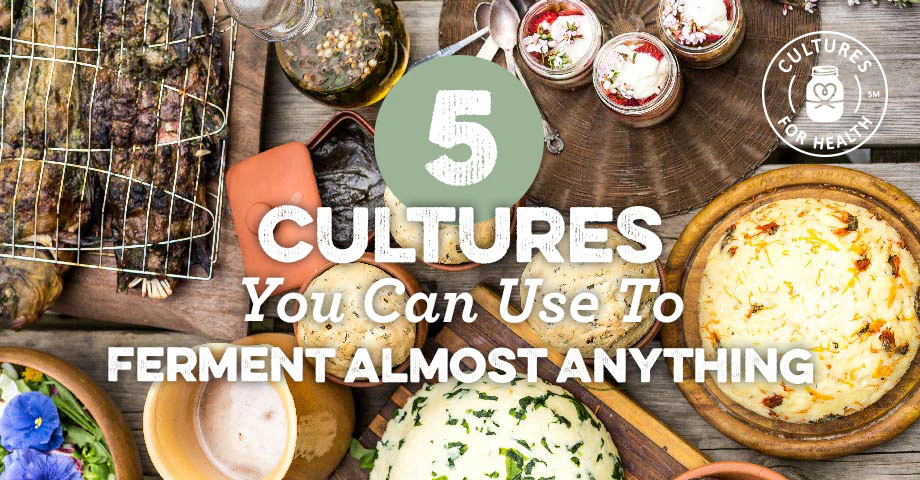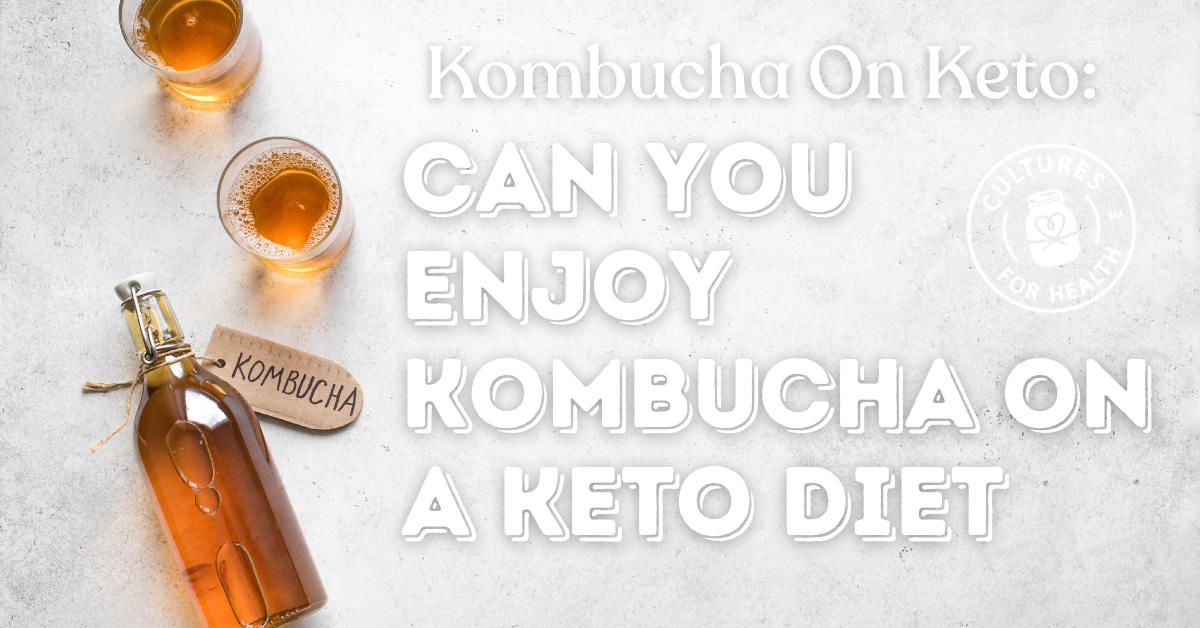
THE VERSATILITY OF STARTER CULTURES
If you have a kombucha starter, you probably use that primarily for kombucha-making. If you have a sourdough starter, then you probably use that for making breads and baked goods. This makes perfect sense, since these cultures are kept and created specifically for that job.
But in the kitchen where fermentation happens at rapid pace or sometimes in myriad of ways using a plethora of different foods, it is good to have a grasp of the what-and-how behind culture starters.
A starter culture is simply a dehydrated set of micro-organisms. Since it is in a dehydrated state it can be kept for quite a long time and used as needed. The benefit to this is that it is convenient and requires no maintenance.
What you may not realize is that if you have anything culturing on the countertop or already cultured and waiting in your refrigerator, then you have a starter culture.
Each of your cultured foods has its own unique set of microorganisms. These microorganisms will lend themselves to the fermentation of any food that can be cultured. Some cultured foods, such as yogurt, emphasize the bacterial side of the organism set; others, like kombucha, are rich in both bacteria and yeasts.
So whether you have a fruit soda you’d like to try, a salad dressing you’d like to culture, or a bean dish that you’d like to try fermenting; you can choose any of the cultures that you may already have around as the starter culture.
1. Sourdough Starter
This is obviously well-suited to grain dishes and baked goods, but can also be used to culture beans, fruits, and even vegetables. You can also use sourdough bread to make kvass, which has a bread-yeast beer flavor.
2. Juice from Fermented Vegetables
Skimming the juice from a jar of sauerkraut or a few tablespoons of brine from a batch of pickles will give you an instant starter culture. Use this for any other vegetable ferment you’d like to start. Also consider using it to culture a salad dressing, fermented salsa, relish, or even a fruit-based ferment.
3. Whey from Yogurt or Kefir
Draining the milk solids from the whey will give you a culture starter that will keep for a longer period of time than the yogurt or kefir itself. Use this to ferment vegetables, fruits, whole grains, or juice-based lacto-fermented sodas.
4. Kombucha
Whenever you bottle a new batch of kombucha it contains traces of the mother. So it contains strands of beneficial yeast and bacteria that will feast on carbohydrates and produce similar yeasts and bacteria. Use it as a base for culturing ketchup, mustard, salad dressing, or a sweet and savory fruit-vegetable relish.
WHAT WILL YOU CHOOSE?
Now that you have an idea of what you can use, consider the benefits. For one, you don’t need to keep a culture starter around in order to culture various foods. If you find that a certain culture — kombucha or kefir, for instance — is particularly valuable in your quest for better health, then you can use that specific culture to make a variety of cultured foods and get similar benefits.
When a specific culture works well with your body chemistry, you can know that your body is responding well to the specific microorganisms in that culture. Using that particular culture to culture something else then imparts those microorganisms into that new food and will continue to help you in your quest for health.
















